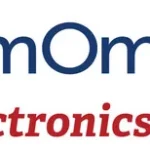What is electronics contract manufacturing?
Electronics contract manufacturing (ECM) involves outsourcing the production of electronic components or entire electronic products to specialized manufacturing companies. In this setup, an original equipment manufacturer (OEM) partners with an ECM firm to handle various stages of the production process, including design, prototyping, assembly, testing, and packaging. ECM companies leverage their expertise, resources, and infrastructure to efficiently produce electronic goods at scale, often offering cost-effective solutions and shorter time-to-market. This model allows OEMs to focus on core competencies such as research, development, and marketing while benefiting from the manufacturing capabilities and flexibility provided by ECM partners.
How big is the contract manufactured electronics market?
The global Electronics Contract Manufacturing Market is poised to attain a substantial milestone, projected to reach $1,013.7 billion by 2030, with a noteworthy compound annual growth rate (CAGR) of 9.6% from 2023 to 2030. Notable figures underscore its significance: the market was valued at $556.8 billion in 2023, while the electronic contract manufacturing and design services market size is anticipated to burgeon from $484.66 billion in 2023 to $796.8 billion by 2028, reflecting a CAGR of 10.3%. Moreover, the United States Electronic Contract Manufacturing and Design Services Market is anticipated to attain $241.9 billion by 2032, expanding at an 8.7% CAGR from 2022 to 2032. On a global scale, the electronic contract manufacturing and design services market size is forecasted to reach approximately $1,398.92 billion by 2032, propelled by a robust CAGR of 10.4% from 2023 to 2032. In essence, the global contract manufactured electronics market emerges as a significant and rapidly expanding sector, poised to surpass $1 trillion by 2030, driven by outsourcing trends, supply chain flexibility, and access to advanced manufacturing capabilities.
What are the most common contract manufactured electronic products?
Contract manufactured electronic products span a diverse array of categories, encompassing consumer electronics such as smartphones, tablets, laptops, and gaming devices, automotive electronics comprising electronic components and control systems, as well as industrial and manufacturing electronics including industrial equipment, manufacturing machinery, and automation systems. Additionally, aerospace and defense electronics, healthcare electronics like medical devices and diagnostic equipment, telecommunications electronics encompassing networking equipment and infrastructure, energy and power electronics for renewable energy systems, computing and IT electronics like servers, data centers, and IT infrastructure components, as well as IoT and smart devices including wearable technology, are commonly produced through contract manufacturing services. This broad utilization of contract manufacturing underscores its pivotal role across various sectors, from consumer goods to specialized applications, driven by the capacity to harness specialized expertise and manufacturing capabilities, which serves as a principal driver of growth in the contract electronics manufacturing market.
How to choose an electronic contract manufacturer?
Choosing an electronic contract manufacturer (ECM) involves careful consideration of several key factors. Begin by assessing the ECM’s experience and expertise in producing electronic components or products similar to your requirements. Evaluate their technological capabilities, production capacity, and quality control processes to ensure they align with your design standards. Check for relevant certifications and industry compliance to ensure the manufacturer meets regulatory requirements. Consider the ECM’s flexibility in accommodating changes, scalability to meet production demands, and geographic location for logistical efficiency. Seek client references and review their reputation and reliability. How can also use platforms like Find My Manufacturer to compare and reach out to many of the top electronic contract manufacturers.
Why is electronic contract manufacturing popular?
Electronic contract manufacturing (ECM) is popular for several reasons. Firstly, it allows original equipment manufacturers (OEMs) to focus on their core competencies such as research, development, and marketing, while outsourcing the manufacturing process to specialized ECM firms. This leads to increased efficiency and cost savings. Secondly, ECM firms typically have access to advanced technologies, specialized equipment, and skilled labor, allowing them to produce high-quality electronic products with shorter lead times. Thirdly, ECM offers flexibility in production volumes, allowing OEMs to scale their production up or down based on market demand without the need for significant investments in infrastructure. Additionally, ECM facilitates access to global supply chains and reduces manufacturing risks, making it an attractive option for companies seeking to streamline their operations and remain competitive in the rapidly evolving electronics industry.
How to start your own private label electronics business?
Starting your own private label electronics business involves several key steps. Begin by conducting market research to identify potential product niches, your target demographics, and competitors in your industry. Develop a clear business plan outlining your goals, budget, and marketing strategies. Next, source reputable suppliers or manufacturers capable of producing high-quality electronic products under your brand name. Collaborate closely with your chosen manufacturer to design, prototype, and manufacture your products according to your specifications and needs. Establish an e-commerce platform or retail channels to sell your private label electronics, and invest in marketing and branding efforts to build brand awareness and attract consumers to your brand. Continuously monitor market trends and customer feedback to refine your product offerings and grow your business.








